
For a couple of years, many are the users who are fed up with the saying cookie message, a message that by law must show each and every one of the web pages the first time we visit them and that allows us to select what type of cookies we want to be stored on our device.
These cookies allow web pages to follow our trace on the internet, so that they can target advertising based on the searches we have done and the articles we have visited. To the problem of the cookie message, we have to add that of the notifications of the web pages we visit, notifications that are sometimes confused with pop-up advertising.

Notifications or advertising
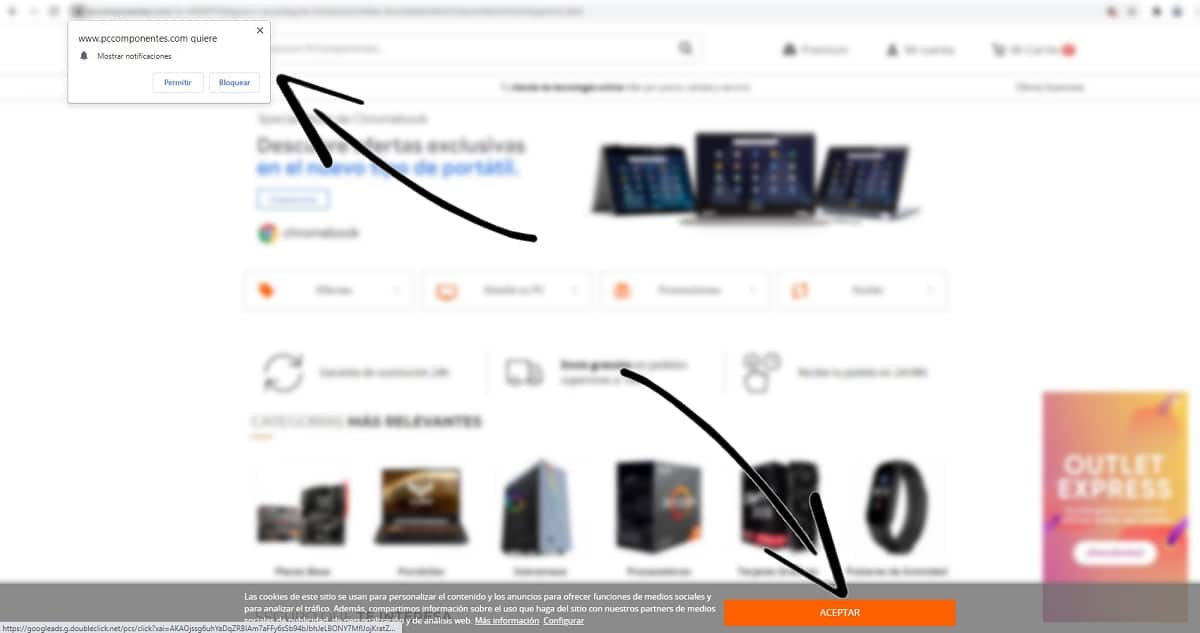
Many are the users who when they visit a web page for the first time, click on accept / allow in each and every one of the windows that are shown on the web pages and that are 2:
- Information on the use and operation of cookies on the website.
- Activate notifications. Option that allows us to receive notifications of new publications.
While the information about cookies is always displayed at the bottom of the browser, the window of whether we want to activate browser notifications for new publications, it is always at the top.
If we want remove popup ads from Google Chrome, it is likely that what we really want to do is deactivate the notifications of the web pages to which we have authorized the sending of them.
If so, what we really need to do is disable browser notifications or from a specific website. If you want to know how to carry out this process, I invite you to continue reading the next section.

Disable web page notifications
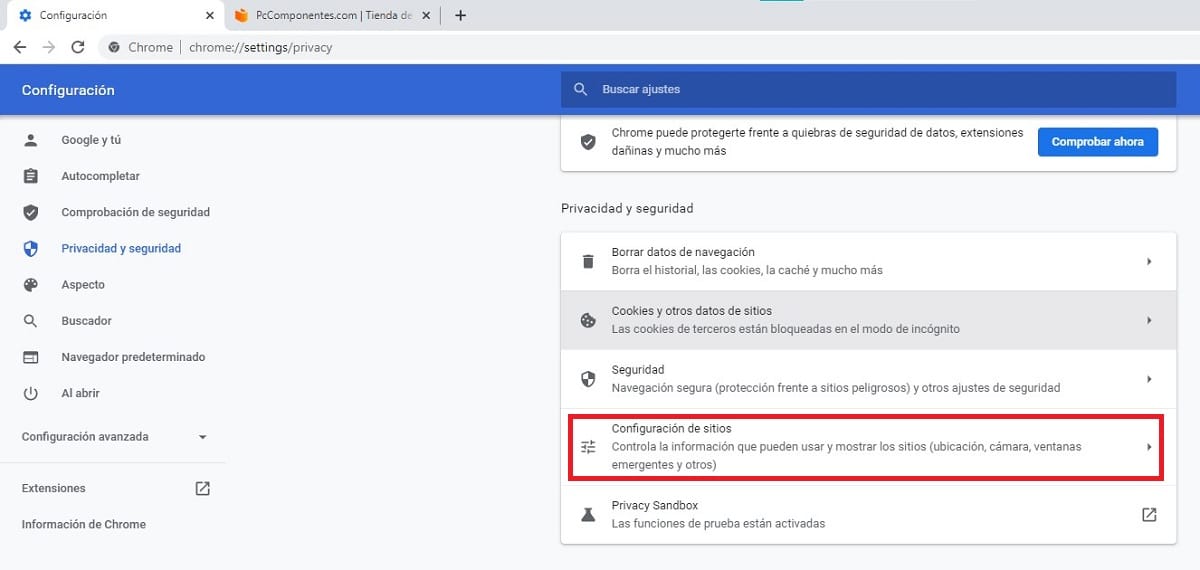
To disable web page notifications, we must access Chrome's configuration options and click on the option Privacy & Security.
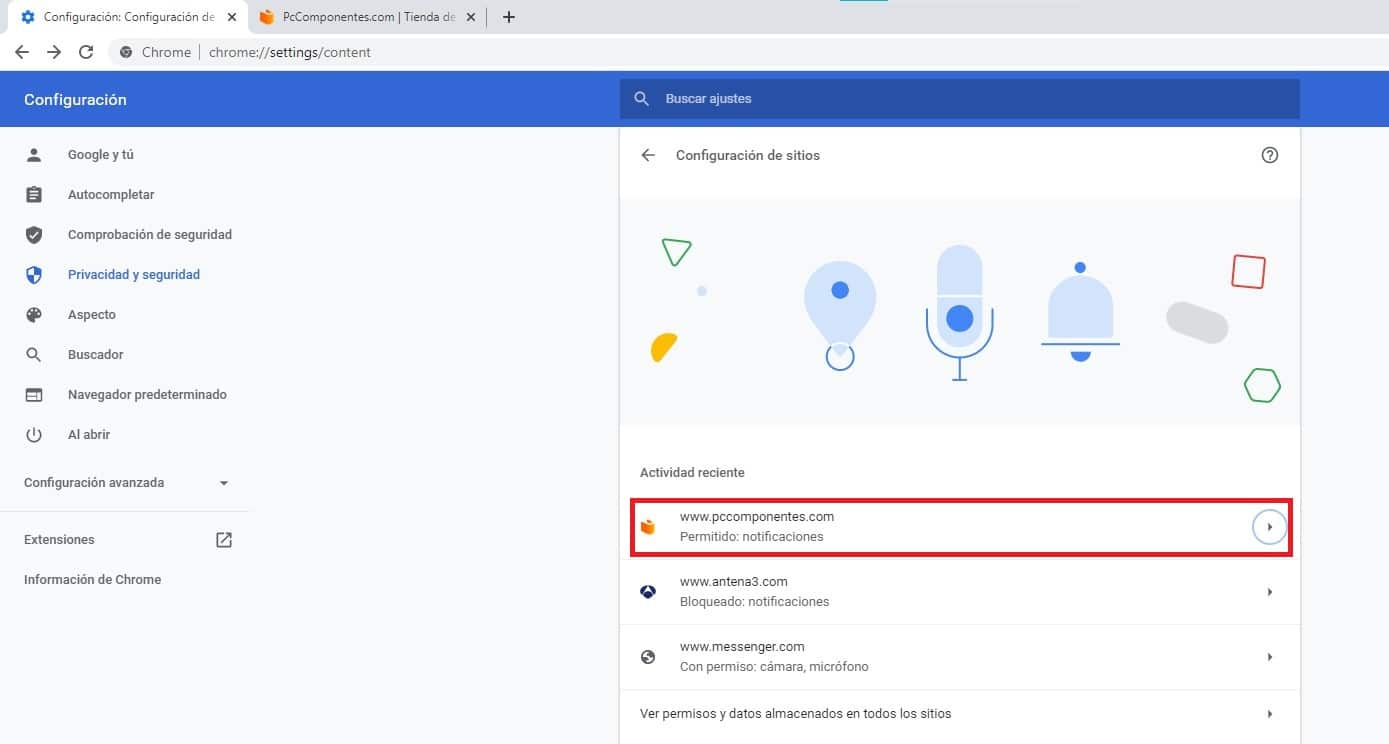
Within that section, in the right column, we look for the source, the website that sends us notifications that we want to deactivate and click on it.
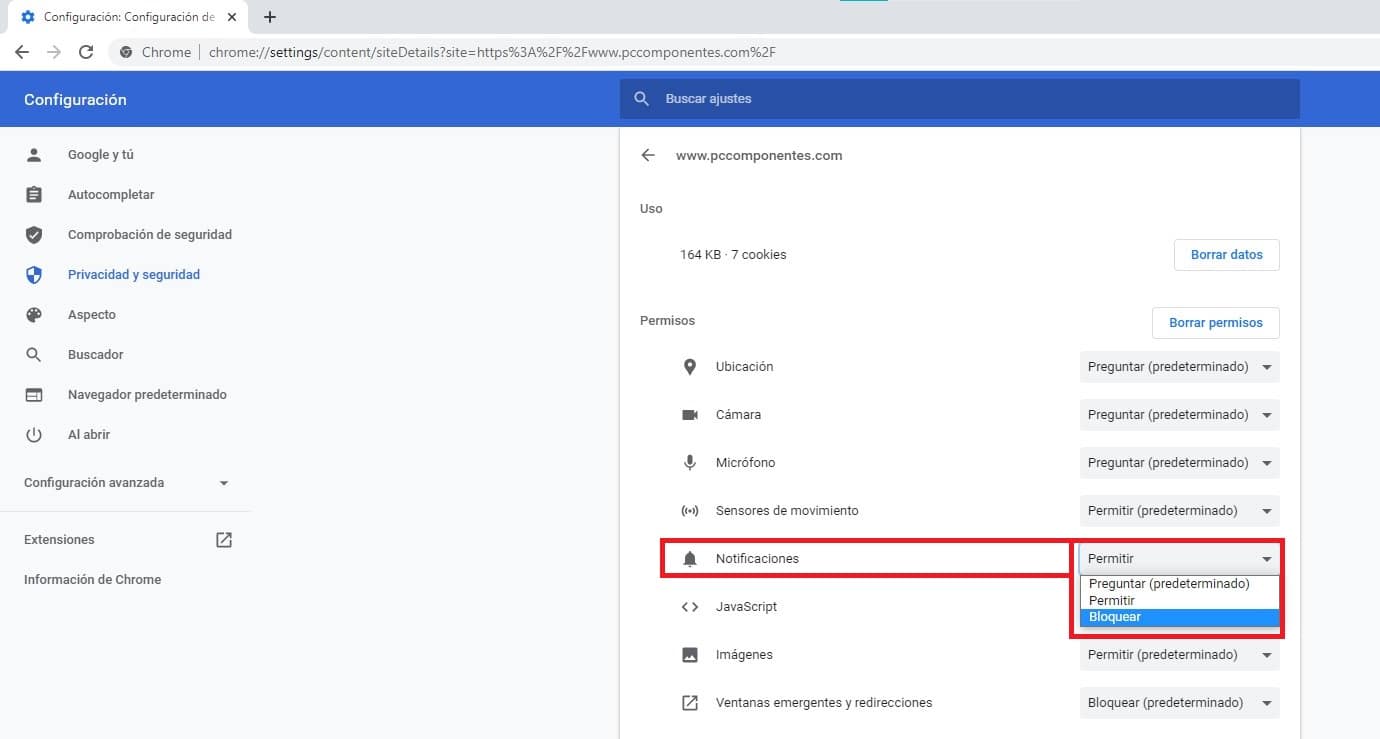
Within the options of this web page, we look for the option Notifications and select the option in the drop-down box Block.
Advertising pop-up problem
As the internet became popular in the late 90s and early 2000s, many were the websites that abused advertising showing pop-ups with all kinds of ads, a practice that forced browsers to gradually add functions that would block these types of windows, although not always with the desired result.
Fortunately, this type of content has dropped dramatically in recent years and, unless we visit content or pornography download web pages, it is very difficult to find this type of content, since in addition, Google penalizes web pages that use it.
If Google penalizes you in search results, now you can forget to get some income from advertisingSince the page will not show up in search results, and if it does, it will show so low that you will hardly receive visits
Pop-up windows have evolved to another type of format that, like pop-up windows, affects the user's browsing experience. To solve this problem, the Coalition for Better Ads.
Install an ad blocker in Chrome
Google Chrome's built-in ad blocker
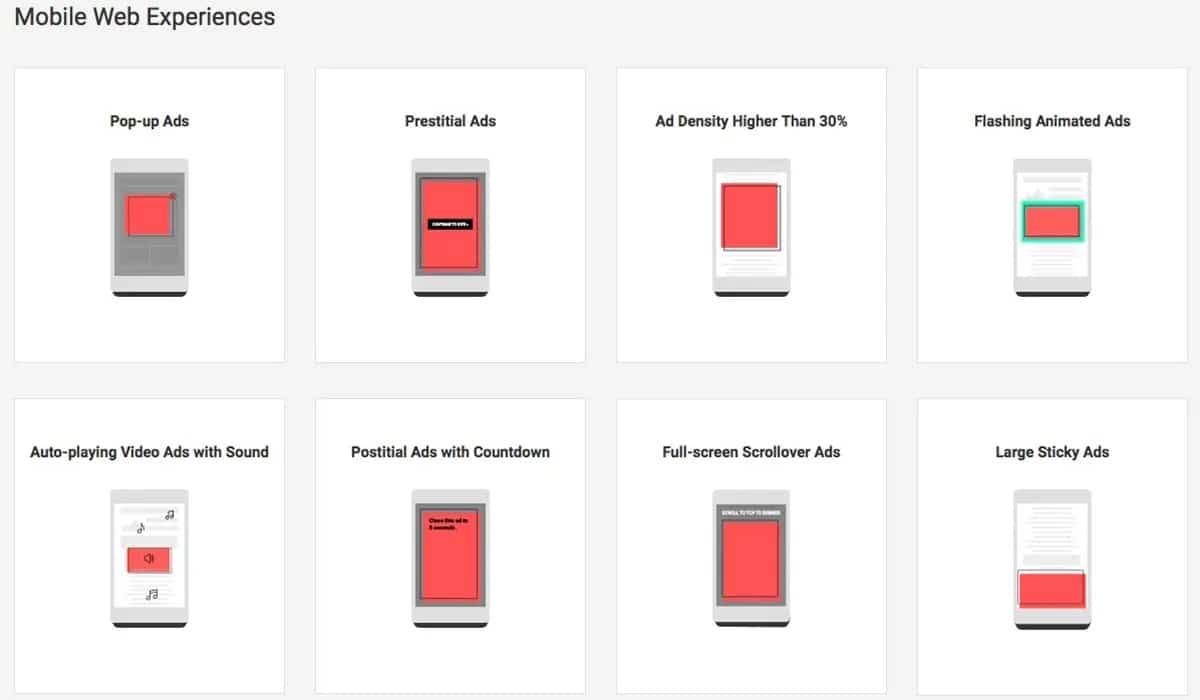
Chrome includes an ad blocker natively and it is activated by default. This ad blocker is focused on blocking, worth the redundancy, all kinds of advertising that does not comply with the guidelines established by the Coalition for Better Ads, where you can also find Facebook, Microsoft, News Corp, NAVER Group ...
The ads that are automatically blocked by Google Chrome are:
- Pop-up Ads. Ads that force us to close them to access the website, also known as pop-up windows.
- My Listings prestigious. They are shown just before loading the content of a page and that forces us to click on it to access the content.
- Ads occupying more than 30% of the screen. Ads that occupy more than 30% of the screen of our smartphone.
- Ads that change color quickly to grab the reader's attention.
- Ads that play a video with sound automatically.
- Ads with a countdown. They show a countdown before showing a button that allows us to access the page.
- Ads that are fixed on the screen while we scroll through a web.
- Advertisements posted.
These types of ads impair the user's browsing experienceHence, Google's ad blocker does not block all the ads that are displayed on web pages, as it would also go against its main source of income: advertising.
Also, keep in mind that most blogs, if not 99,9%, are maintained thanks to advertising, being this the only source of income, so using an ad blocker type Adblock, the only thing that achieves is to deprive that medium of the necessary resources to maintain the servers, pay the publishers ...
Blocking intrusive advertising from Google Chrome, is natively activated both in the version of Chrome for PC and Mac and in the version for iOS and Android.
Adblock
The most radical solution to remove all ad-supported pop-ups displayed in the browser is by using an ad blocker, being Adblock the best known and used worldwideHowever, it is not infallible.
In addition, some web pages detect that it is being used and they do not allow you to access their content unless you deactivate it for that page. Another problem, which I mentioned in the previous section, is that it has a negative impact on blogging income.
If you want to collaborate with the media that you usually read to be informed of the topics that interest you most, with the solution that Google offers natively through Chrome It is more than enough, since it does not affect the income they obtain, as long as they do not use the types of ads that Google blocks and that I have discussed in the Google Integrated Ad Blocker section.
How to disable the cookie message

Done the law done the snare. When a measure is implemented by force Without the user having the option to choose, as is the case with information messages from cookies, users quickly get to work to find a solution.
If you want the cookie message not to be displayed every time you visit a new web page, the solution is to install the extension for Chrome and Microsoft Edge I do not care about cookies, an extension that is also available for the Firefox and Opera browsers, in their desktop versions.
The I don't care about cookies extension, prevents the information message of the treatment and use of cookies from being displayed of the web pages we visit. This extension is available for download completely free of charge.